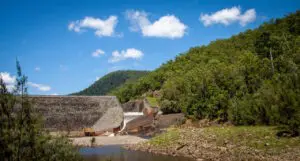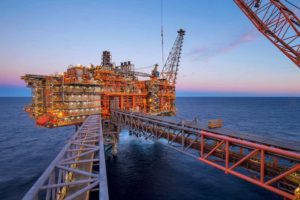A new joint venture could see the creation of new of hydrogen supply chains boosted in Australia, including production and re-fuelling infrastructure for hydrogen vehicles, with ASX-listed gas exploration company Real Energy looking to tap into coal seam gas reserves at a new hydrogen hub in Queensland.
The joint venture has been formed between Pure Hydrogen, a subsidiary of Real Energy Corporation, and project developer Liberty Hydrogen, and will focus on the creation of four hydrogen production facilities across the Australian east coast.
The joint venture will be incorporated in the United States and will be named Pure Hydrogen International.
The venture is targeting four Australian gas hubs, two based in Queensland which were already being developed by Pure Hydrogen, with additional hubs planned for New South Wales and Victoria that were being developed by Liberty Hydrogen.
“The potential for scale when it comes to Australian hydrogen is immense, particularly given the burgeoning rise of forecasted hydrogen markets in Asia Pacific and mounting interest in the North American region,” Real Energy’s managing director Scott Brown said.
“Pure Hydrogen is well placed to capitalise on this by continuing to fast-track Australia’s hydrogen and fuel cell technology infrastructure.
“As more and more countries around the world transition to low carbon energy sources, Real has a fantastic opportunity to be a leader in sustainable hydrogen technology production and exports and the four new Hydrogen Hubs can help pave the way forward for Australia’s hydrogen future,” Brown added.
The first hub, dubbed ‘project Saturn’ is planned for central Queensland, near the town of Miles, and is located near by to a number of coal seam gas projects controlled by Real Energy. Pure Hydrogen has said that it could tap into these gas supplies for the production of hydrogen.
Details about the remaining three hubs are forthcoming, with the joint venture currently in negotiations for sites Queensland, in Newcastle in NSW and South East Victoria.
The NSW and Victorian projects were previously being developed by Liberty Hydrogen, and are set to use alkaline electrolyser technologies, powered by electricity sourced through either “blue” or “green” power purchase agreements.
Depending on the source of electricity secured, hydrogen produced at these latter hubs could be zero emissions.
The creation of the joint venture follows Pure Hydrogen recently signing a Memorandum of Understanding with hydrogen transport firm Hyzon to cooperate on the development of a hydrogen refuelling network across Australia.
While the MoU largely represents a cooperative agreement, the deal will focus on the development of hydrogen supply chains for the transport industry, particularly for fleet vehicles, with Hyzon Motors developing a number of heavy vehicle models, including buses and trucks.
The deals have been enough encouragement for investors, with the price of share in Real Energy more than doubling since the start of the year, and currently trade at around 8 cents per share.
The plan is closely aligned with a proposed approach to the development of an Australian hydrogen industry advocated by former chief scientist Dr Alan Finkel, who authored the National Hydrogen Strategy adopted by federal, state and territory energy ministers.
In that strategy, Finkel suggested that Australian could use hydrogen produced using fossil fuels, paired with carbon capture and storage, to establish the early components of a larger supply chain, which could then ultimately transition to sources renewable hydrogen once reductions in costs are achieved.
The suggested approach attracted some criticism from many who view the production of fossil fuel hydrogen as a lifeline to the coal and gas sector, at a time when a transition away from fossil fuels needs to be accelerated.
Peak body, the Smart Energy Council, recently inked a cooperative agreement with the Germany Energy Agency to develop a new certification scheme for hydrogen, allowing for hydrogen produced from different feedstocks, including renewable electricity or fossil fuels, to be differentiated.










